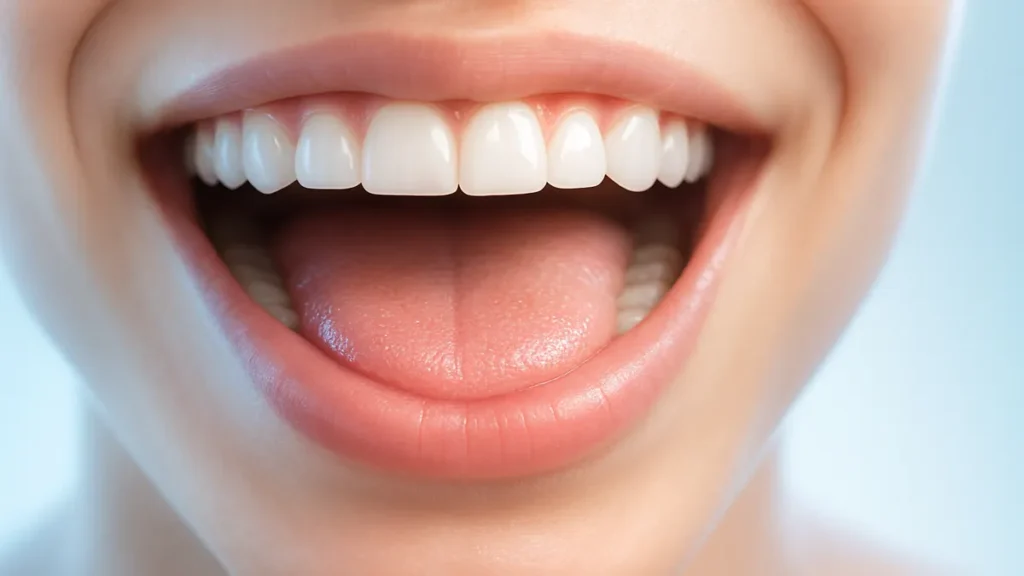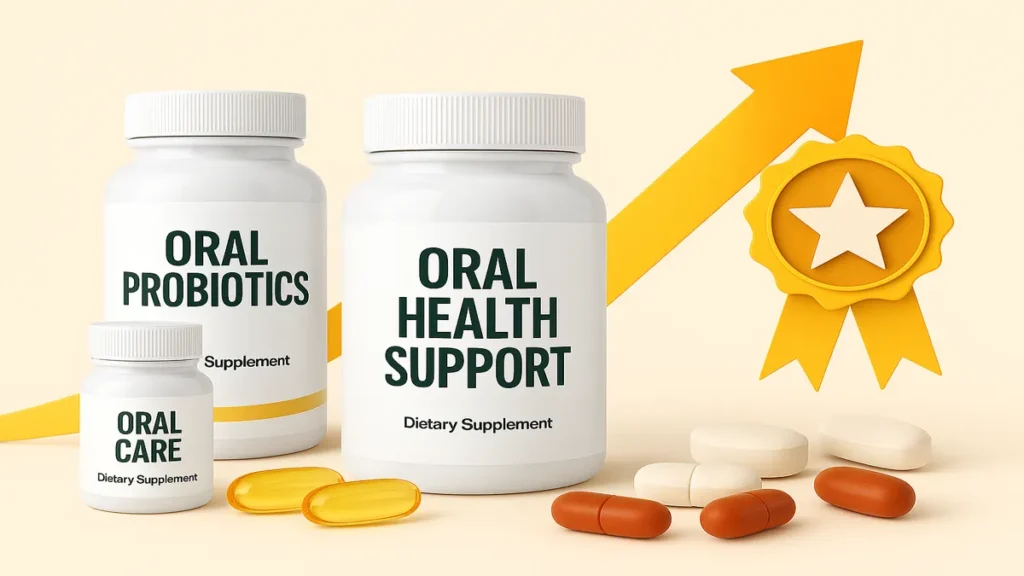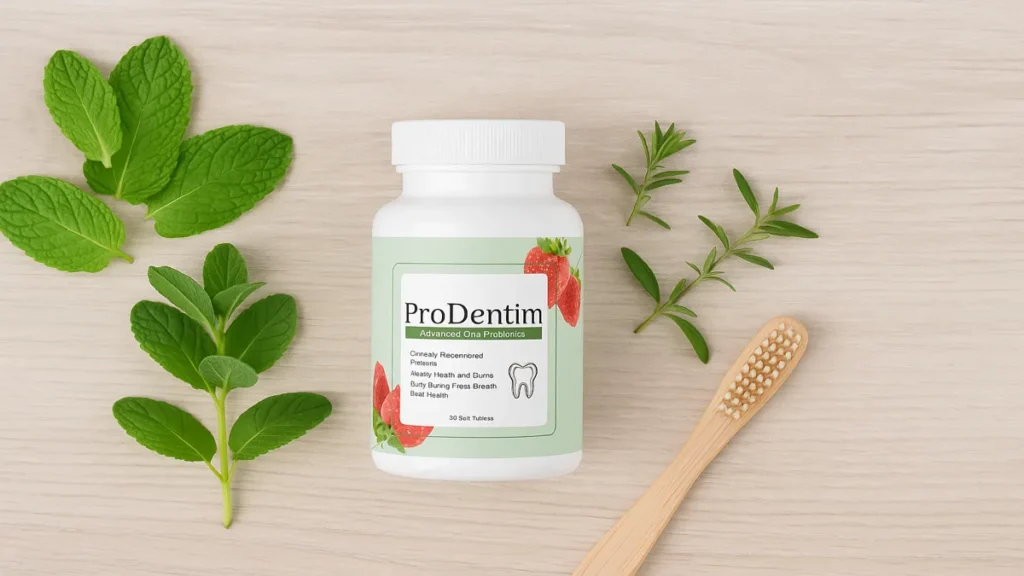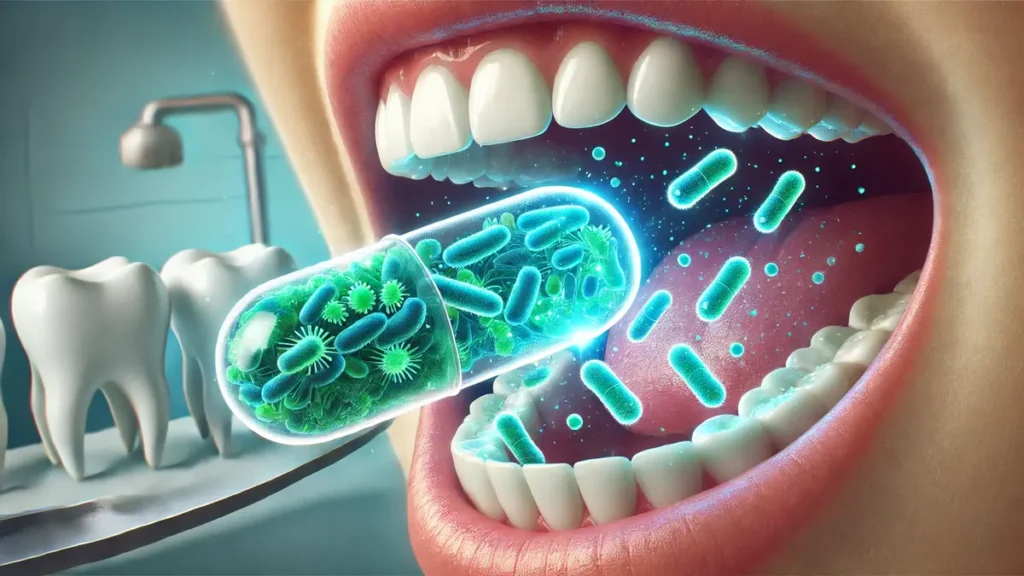
Do probiotics help with bad breath? If you’re asking that, you’re probably doing everything right — brushing daily, using mouthwash, even watching your diet.
Yet somehow, the bad breath returns.
You’re not alone. For many people, the issue isn’t hygiene — it’s bacterial imbalance. When bad microbes dominate your mouth’s microbiome, no amount of minty rinse will fix the root cause.
That’s where oral probiotics come in. These good bacteria help crowd out the harmful ones, restoring balance and supporting truly fresh breath — from the inside.
👉 Want a science-backed solution? See our top-rated oral health supplements here.
What Really Causes Bad Breath?

At first glance, bad breath seems like a simple hygiene problem. After all, if you brush, floss, and rinse, it should go away — right? Unfortunately, that’s not always the case.
In reality, one of the main culprits is a group of microbes called anaerobic bacteria. These organisms thrive in low-oxygen environments, such as the back of your tongue, between your teeth, and even around your tonsils. As they break down proteins and leftover food particles, they release volatile sulfur compounds (VSCs) — which are the true source of that unpleasant odor.
But it doesn’t stop there. Several other factors make the problem worse. For example, your saliva production naturally slows down at night, which allows bad bacteria to multiply faster. At the same time, habits like mouth breathing, high-sugar diets, and ongoing stress all contribute to dry mouth and an unbalanced oral environment.
To make matters worse, most common solutions — like strong mouthwashes or flavored gum — only mask the odor temporarily. They rarely address what’s happening at the microbial level.
Ultimately, the root cause of bad breath lies in your oral microbiome — the balance of good and bad bacteria inside your mouth. When that balance tips in the wrong direction, odors become stubborn and persistent.
This is exactly why lasting relief requires more than brushing. You need to support your microbiome and restore balance — from within.
How Probiotics Work in the Mouth

When people hear “probiotics,” they often think of digestion or gut health. While that’s accurate, oral probiotics are different — and they’re designed to work where the problem actually starts: inside your mouth.
Unlike digestive probiotics, which focus on your intestines, oral probiotics target your oral microbiome — the complex ecosystem of bacteria living on your tongue, gums, cheeks, and throat. These areas are constantly exposed to food, stress, and changes in pH, which can easily throw bacterial balance off.
That’s where beneficial bacteria come in.
Oral probiotic strains — such as Streptococcus salivarius K12 and M18, or Lactobacillus reuteri — work by crowding out harmful microbes and reintroducing balance. When taken regularly, they begin to colonize the mouth, especially on the tongue and soft tissues. This helps reduce the presence of odor-causing bacteria and supports healthier gums.
But how do we know this actually works?
Studies have shown that daily supplementation with oral probiotics can lead to noticeable improvements in breath freshness, gum inflammation, and even plaque control. For example, a 2-week trial using S. salivarius K12 showed a significant reduction in volatile sulfur compounds — the main cause of bad breath — compared to a placebo group.
Moreover, unlike harsh mouthwashes that kill all bacteria indiscriminately, oral probiotics selectively support the good microbes your mouth needs for long-term health.
In short, instead of fighting your oral microbiome with chemicals, you support it — allowing your body to restore balance naturally.
Best Probiotic Strains for Breath and Oral Health

When you want real results, you need the right strains — not just any probiotics. Certain bacteria specialize in targeting odor, soothing gums, and keeping your mouth’s ecosystem balanced.
🔬 Streptococcus salivarius K12 & M18
These two strains lead the way in oral probiotic research. K12 works by attaching to the tongue and throat, where it neutralizes odor-causing bacteria. M18, on the other hand, focuses on protecting enamel and reducing plaque. Together, they support long-term freshness and stronger teeth.
🧫 Lactobacillus reuteri
This strain plays a major role in calming gum inflammation and pushing back against harmful microbes. People with sensitive or bleeding gums often notice relief within weeks when they use it consistently.
🌿 Lactobacillus paracasei
This powerful strain helps you maintain a healthier pH in your mouth. It also limits sticky biofilm buildup, which leads to both odor and plaque.
🍌 Prebiotics like inulin and dietary fiber
Your probiotics need fuel. That’s where prebiotics come in. Ingredients like inulin feed the good bacteria, helping them multiply and stay active in your mouth. A supplement that combines prebiotics and probiotics gives your oral microbiome everything it needs to thrive.
Don’t waste time with generic formulas. Instead, focus on clinically backed strains that actually work — and support them with smart nutrition.
👉 Curious which strains really deliver? Check our expert-reviewed guide here.
What Kind of Results Can You Expect?

When you start using oral probiotics consistently, you don’t have to wait long to feel a difference. In most cases, people report fresher breath within 3 to 7 days. That’s because the beneficial bacteria begin working quickly to rebalance your oral microbiome and push back the odor-causing strains.
For deeper results — like stronger gums and reduced sensitivity — the timeline often stretches to 2 to 4 weeks. But here’s the key: you need consistency. Skipping doses or switching products too soon slows progress and reduces the impact.
As the days go by, most users notice more than just breath improvements. They feel more confident in conversations, especially in the morning or after meals. Some stop reaching for gum or mouthwash altogether. Others describe a sense of cleanliness that lasts all day, even without constantly brushing or rinsing.
Over time, oral probiotics create a stronger foundation — one that supports not only fresh breath but also healthier gums, better saliva flow, and less irritation after eating or brushing.
Everyone’s body responds differently, but with the right routine, you’ll likely feel real progress within the first month.
Supplements vs Food: What’s More Effective?

You can find probiotics in foods like yogurt, kefir, or kombucha — and these options do offer some benefits. However, if your goal is to fight bad breath and support oral health, food alone won’t always cut it.
Here’s why: supplements provide specific strains known to colonize the mouth — like Streptococcus salivarius K12 or Lactobacillus reuteri. These aren’t always present in fermented foods. Even when they are, the concentration remains low and unpredictable.
High-quality supplements, on the other hand, guarantee a minimum number of CFUs (colony forming units) per dose. That means you know exactly what your body receives. You also get targeted delivery, often in lozenge or chewable form, which allows the probiotics to stay active in your mouth — where they’re needed most.
That said, you don’t have to choose one over the other. In fact, pairing probiotic-rich foods with supplements creates a stronger foundation. The foods support gut and systemic health, while the supplement targets your mouth directly.
Final Verdict: Can Probiotics Help Fix Bad Breath for Good?

Yes — when you address the root cause, not just the symptoms. Bad breath doesn’t start on your toothbrush. It begins with an unbalanced oral microbiome, where harmful bacteria overpower the good.
By restoring that balance, oral probiotics offer a smarter, long-term solution. They don’t just freshen breath — they support your gums, reduce inflammation, and help your mouth protect itself naturally.
Of course, consistency matters. But when you choose the right strains and build the right routine, the results can last.
👉 Want to support your oral microbiome naturally? See our complete guide to the best solutions.
FAQ — Probiotics and Breath: Your Questions Answered
They don’t “cure” bad breath instantly, but they treat the root cause — bacterial imbalance. With consistent use, many people experience long-term improvement that lasts far beyond temporary fixes.
Most users notice fresher breath within 3 to 7 days. For deeper results like reduced gum irritation or better saliva flow, it usually takes 2 to 4 weeks of daily use.
Not necessarily. However, avoid alcohol-based mouthwashes, which can kill the good bacteria probiotics introduce. If needed, use a pH-balanced or natural rinse.
Yes — they serve different roles. Digestive probiotics support gut health, while oral probiotics target the mouth and throat. Taking both creates a stronger internal ecosystem that benefits your breath, immunity, and overall health.







